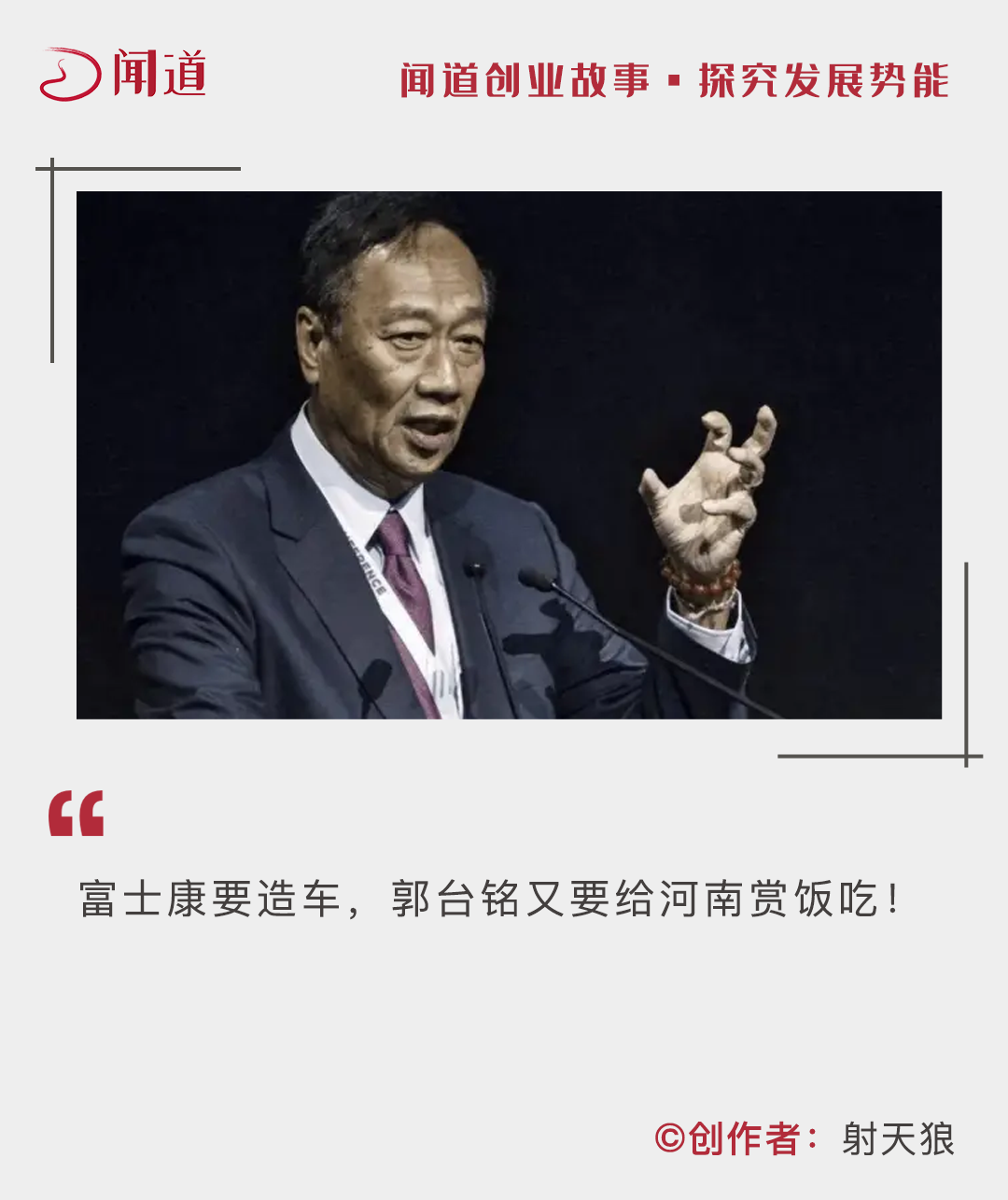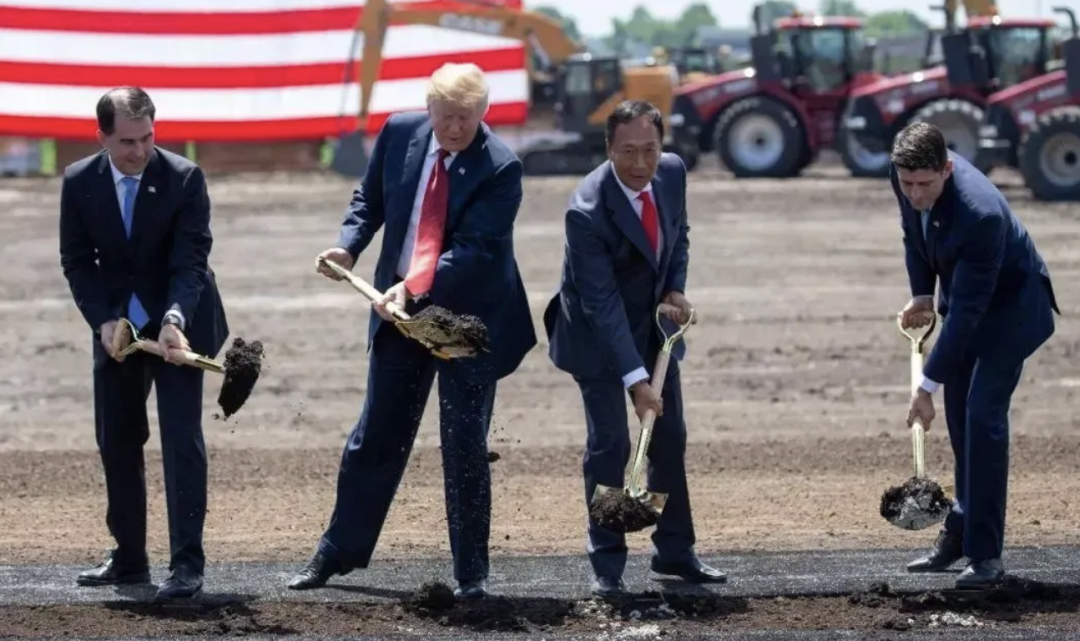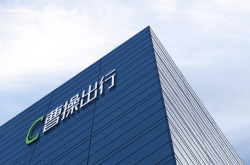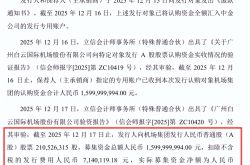Bitten by the US and India, $100 billion investment gone, Gou Tai-ming begs the mainland for food!
![]() 08/06 2024
08/06 2024
![]() 671
671

01
Overseas Defeat, Gou Tai-ming Returns to the Mainland
Gou Tai-ming, who boasted about 'feeding the mainlanders', has returned.
A few days ago, Foxconn announced that it would invest 1 billion yuan to build a global headquarters in Zhengdong New District, Henan Province.
Compared to previous mobile phone assembly plants, this headquarters focuses on the innovative industries of 'new energy vehicles + batteries' and has slightly higher technology. Additionally, Foxconn announced a 20% pay raise to recall those former employees who have left.
Perhaps due to previous inappropriate remarks and actions, Gou Tai-ming did not come himself this time but instead sent his trusted general Liu Yangwei to visit Henan three times, ultimately finalizing the plant construction plan.
Foxconn's return to Henan is not unilateral but a necessity.
After all, it hasn't been too long since Gou Tai-ming made the outrageous statement that 'it's the mainland that can't do without Foxconn, not the other way around.' At the time, he was drawing a clear line with the mainland, scaling back production at mainland factories, and laying off employees while increasing investment in Southeast and South Asia.
Foxconn's actions at the time were partly to intentionally reduce its dependence on the mainland. The other reason was to blindly follow the lead of the United States and the steps of Apple.
However, Foxconn's current embarrassing situation abroad has forced Gou Tai-ming to rethink his mainland strategy.
In March 2023, Foxconn Chairman Liu Yangwei received a high-level reception from Indian Prime Minister Narendra Modi. The handshake between Liu Yangwei and Modi conveyed Foxconn's super business ambitions in India to the world: investing $19.5 billion to jointly manufacture chips with Vedanta Group in India... This is almost Foxconn's largest overseas project.
However, just 130 days later, Foxconn's chip manufacturing plan with India failed! One excuse given was that Foxconn's 28-nanometer chip factory did not meet Indian standards. But the real reason was that India was unwilling to spend billions of dollars subsidizing a foreign company.
In addition to the unfulfilled top-level policies, Indian workers were also unusually difficult to manage.
In India, workers frequently absent themselves from work without reason. Even all employees would unite to confront the factory. This could easily lead to factory paralysis, and once production stops, the factory would lose hundreds of thousands or even millions.
Furthermore, the yield rate of Apple phones assembled in India is relatively low. Data indicates that the pass rate for Indian workers assembling phones is only 80%, far below the quality on the mainland. Some media even claimed that iPhone hygiene standards in India did not meet requirements, with excessive levels of E. coli bacteria.
As a result, last year's iPhone 15 assembled in India faced sales difficulties and returns, forcing Apple to eventually reduce prices by 2,300 yuan for promotion.
In the United States, Foxconn encountered wage issues.
Previously, Gou Tai-ming planned to build enough factories in the US but could not afford the wages. Gou Tai-ming was only willing to pay the local minimum wage of $4,000 per month, but the union demanded a raise to $6,000. This is almost seven times the wage level on the mainland.
These lessons have been a rude awakening for Gou Tai-ming, who was eager to flee the mainland. Foxconn's escape from the mainland is becoming increasingly costly.
From a longer-term perspective, Foxconn's overseas investments are increasingly watered down, with more and more emphasis on slogans rather than substance.
In 2011, Foxconn announced an ambitious plan in the state of São Paulo, Brazil, to invest billions of dollars locally to build a world-class manufacturing center.
The local government anticipated that this manufacturing center would create tens of thousands of jobs. However, over the following years, Foxconn's local workforce peaked at just 5,000 people. By 2017, Foxconn's factory in São Paulo was empty.
In 2014, Foxconn planned to invest $1 billion to build a factory in Indonesia but stopped the investment a year later due to 'land issues.'
The same is true in India. In addition to canceling the $19.5 billion chip manufacturing project, Foxconn had signed an agreement with the Indian state of Maharashtra in 2015 to invest $5 billion and establish 10-12 factories. However, in 2020, Maharashtra's Industry Minister Subhash Desai stated that Foxconn's plan to establish electronics manufacturing factories in partnership with the state had been canceled.
Even in the US, Gou Tai-ming's factory construction plans have mostly come to nothing, becoming shoddy factories.
During the Trump administration, Gou Tai-ming announced a $10 billion investment in Wisconsin to build a new liquid crystal display panel production plant, aiming to create 13,000 jobs. Gou Tai-ming even boasted that he would make the Wisconsin plant the most advanced manufacturing facility.
Today, this site, three times the size of the Pentagon, has only a few buildings and no signs of production starting.

02
The Disappearing Win-Win between Henan and Foxconn
By reinvesting in Henan, Foxconn aims to break the ice. However, more fundamentally, it is driven by the profit-seeking and opportunistic nature of businessmen.
This may also be related to the external environment. It is rumored that Apple is no longer willing to bet on high-end models in Indian factories and instead plans to outsource the latest iPhone models to the mainland for production.
For the upcoming iPhone 16, Apple has added BYD, Luxshare Precision, and other major manufacturers to the iPhone 16 supply chain, becoming Apple's new contract manufacturing partners.
Apple, the instigator behind Foxconn's escape from the mainland, has stabbed Foxconn in the back by bypassing Foxconn and directly contracting with mainland manufacturers. This has thoroughly agitated Gou Tai-ming.
In reality, for a long time, Foxconn and the mainland, especially the Henan factories, achieved a certain win-win situation.
Zhengzhou has made significant contributions to Foxconn and has also benefited greatly.
On June 20, 2010, the then-Governor of Henan Province braved the scorching sun to wait for Gou Tai-ming at Xinzheng Airport. At that time, Foxconn's Longhua plant was in the spotlight due to a series of suicides, forcing Gou Tai-ming to accelerate his 'birdcage-changing' plan, and Zhengzhou became his key inspection target.
Zhengzhou offered a series of support measures such as land, tax incentives, and recruitment, and even requested customs clearance support from the General Administration of Customs for Foxconn. A month later, Foxconn's first phase of factory buildings in Zhengzhou was put into use, with the first phase recruiting 100,000 people.
Correspondingly, a significant portion of Foxconn's iPhone production on the mainland was also completed in the Zhengzhou park. Leveraging various policies and employee benefits, Gou Tai-ming made a fortune.
Foxconn became Zhengzhou's primary export enterprise. According to statistics, since Foxconn entered Henan, their cumulative total import and export value accounted for approximately 60% of Henan's total import and export value. In 2019, Foxconn's export value from Zhengzhou exceeded 200 billion yuan, accounting for nearly 82% of Zhengzhou's total import and export value.
Furthermore, driven by Foxconn, the total import and export value of the Xinzheng Free Trade Zone exceeded 400 billion yuan in 2023.
However, as the madman Gou Tai-ming frantically fled, Zhengzhou and Foxconn both lost out.
In 2019, Henan's 'Blue Paper on Henan's Economy' pointed out that the province's foreign trade and import-export were highly dependent on Foxconn, and any fluctuations in Foxconn's import-export significantly impacted the province's foreign trade.
Since then, Foxconn's contribution to foreign trade has gradually decreased. However, the problem is that a perfect replacement for Foxconn has not yet arrived.
In the first half of 2024, Henan's exports declined by 19.1%, ranking third from the bottom nationally. Mobile phone exports declined even more significantly, with Henan's total mobile phone exports in the first half of the year reaching 56.5 billion yuan, a year-on-year decline of 49.1%.
Over the past decade, mobile phone exports once accounted for half of Henan's total exports. However, from 2021 to 2023, Henan's total mobile phone exports declined from 272.72 billion yuan to 240.62 billion yuan, and their proportion of Henan's total exports also declined from 54.3% to 45.6%. In the first half of this year, this proportion further declined to 28.1%.
Affected by factors such as fluctuations in foreign trade, Henan's GDP growth rate has been below the national average for four consecutive years since 2020. In 2023, Henan's GDP growth rate was the lowest among the top 14 largest economic provinces. In the first half of this year, Henan's GDP growth rate ranked second from the bottom among the top eight economic provinces.
What is lost on one hand may be gained on the other. Data shows that Henan's electric vehicle exports increased by 69.6% year-on-year from January to April, but the export value was only 2.68 billion yuan, which is clearly insufficient to make up for the shortfall in mobile phones.
Starting this year, signs of Foxconn's return to Henan have become increasingly apparent. In January 2024, Foxconn invested 500 million yuan to build a new energy vehicle components factory in Henan. And just now, Foxconn added another 1 billion yuan investment.
03
Unsightly Behavior, 'Slogan-Based' Car Manufacturing
Foxconn is returning, but the new round of investment is significantly reduced, and there are significant changes in investment direction.
Gou Tai-ming once said, 'I don't want to be called the world's largest contract manufacturer anymore!' Mobile phones are not Foxconn's investment priority; Gou Tai-ming has set his sights on automobiles. In fact, as early as 2005, Foxconn acquired 100% of the shares of Taiwan's Antai Electric Industry for 370 million yuan, entering the automotive field. In 2014, Foxconn, together with Beijing Automotive Group, researched and developed a new generation of power batteries and electric systems, and successively entered the ride-hailing and power battery fields through investments in Didi and CATL.
In January 2020, Foxconn partnered with Fiat Chrysler Automobiles (FCA) to develop and produce electric vehicles and operate connected car services in China.
On January 13, 2021, Foxconn and Geely signed a cooperation agreement to establish a joint venture company to provide contract manufacturing and customized consulting services for global automotive and mobility companies. In addition to traditional automakers, Foxconn is also strengthening its cooperation with new energy vehicle manufacturers. On February 24, Foxconn signed a memorandum of understanding with Fisker to produce Fisker's second electric vehicle. Furthermore, Foxconn has also launched an open platform, the MIH modular pure electric platform, for the electric vehicle industry, forming the MIH Alliance through this platform.
Gou Tai-ming's ambition is undeniably vast! Leveraging the MIH platform, his goal is for consumers to customize their cars according to their individual needs, just like using mobile phones.
As Liu Yangwei put it, 'Tesla is the Apple of electric vehicles, and Foxconn hopes to become the Android of the electric vehicle industry.' Previously, at the 2023 Hon Hai Technology Day, Foxconn also launched two new electric vehicles, the Model N and the Model B production version, openly 'challenging' Tesla.
Liu Yangwei even extended an olive branch to Elon Musk: 'I hope that one day, we can help Tesla manufacture cars.'
However, Musk was not receptive: 'Cars are much more complex than mobile phones. You can't just go to a supplier like Foxconn and say, 'Make me a car.' Undeterred, Gou Tai-ming announced plans to produce 500,000 to 750,000 electric vehicles by 2025. This is almost an impossible task. With overseas investments failing, Gou Tai-ming has turned his hopes to Henan.
However, Foxconn's 'slogan-based investments' have taught us enough lessons. We must rationally view Gou Tai-ming's slogan-based investments, which often bring disappointment and emptiness.
It is particularly important to note the significant uncertainty brought about by Gou Tai-ming's shifting role between politician and businessman.
Behind the apparent return of Foxconn to Zhengzhou, we must recognize several sobering facts: This year, the proportion of Apple's iPhone 16/Pro Max produced in India has increased significantly. For the mainland, its share in Apple's supply chain has further declined, especially for components such as connectors, glass covers, and metal structures, which are no longer produced on the mainland...
Compared to overseas investments often reaching hundreds of billions, the 1 billion yuan investment in car manufacturing is minuscule.
We certainly hope that after going through trials and tribulations, the second union between Foxconn and Zhengzhou can put aside prejudices and achieve mutual success.
However, we must always be vigilant: For those who do not cherish even win-win situations, it will be even harder to share hardships and forge new paths together.
Relying on oneself and becoming stronger is the fundamental solution.






